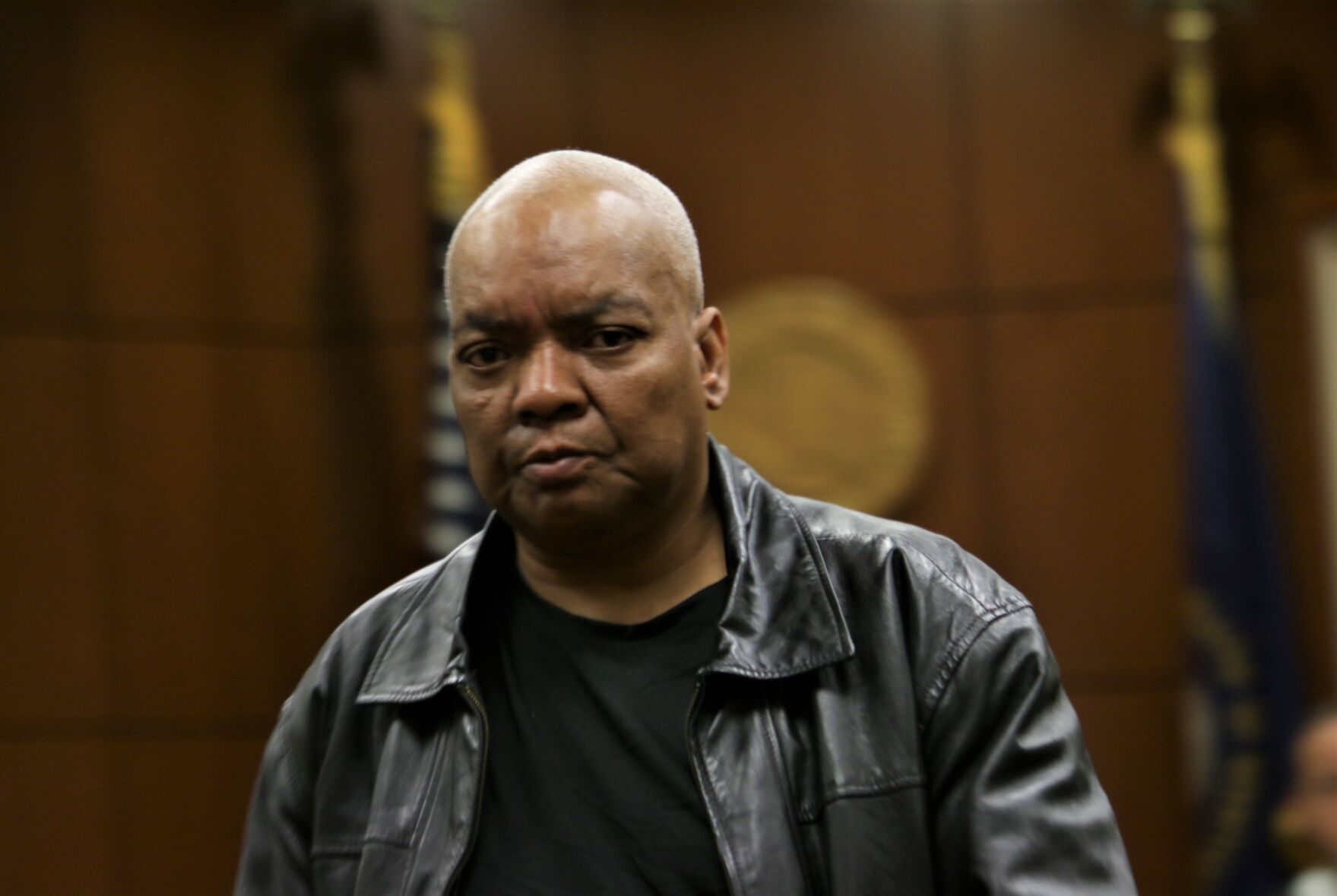LOUISVILLE, Ky. (WDRB) -- Nearly 30 years after Brenda Whitfield was shot in the head at close range, killed while working as a Louisville gas station clerk in 1993, a jury failed to come to a decision as to whether Percy Phillips was the man who pulled the trigger.
The jury deliberated about five hours Wednesday before telling Jefferson Circuit Court Judge Eric Haner they were hopelessly deadlocked and would not be able to come to a unanimous agreement.
The jury had told Haner the same thing earlier in the day before he sent them back to deliberate further. After the second time, he declared a mistrial.
Assistant Commonwealth's Attorney Mark Baker said he would talk with the victim's family and top prosecutor Tom Wine to decide what steps to take next.
“We knew the difficulties that would come with presenting this to a jury,” Baker said. “We have memories that aren’t as good as they were. We have witnesses that are unavailable.”
He said the jury being unable to reach a decision is something he certainly thought could happen.
“We’re going to have to regroup and think about where we’ll go from here,” Baker said. “The jury did a great job and deliberated for a long time.”
Julie Mudd, an attorney for the defense did not want comment after the mistrial. Phillips, who is out of jail without a bond, also declined to comment as they left the courtroom. Haner told both sides a hearing would be scheduled in May to determine the next steps.
During closing arguments of the week-long trial earlier Wednesday, both sides seemed to agree on only one important detail of the case:
Edwin Chandler, who sat in the courtroom watching, was not the killer, despite having confessed to the crime and serving seven years in prison.
"This is not a case about Edwin Chandler," Baker said in his closings. "He didn’t do it. He wasn’t there."
Mudd told jurors it's "most probable" that Chandler was not the killer, but more likely a victim of police errors, corruption and "tunnel vision" that left him wrongfully incarcerated.
But she warned jurors about going down the same wrong path again, telling them witness descriptions didn’t resemble Phillips and a hair found in a hat worn by the killer didn’t match his DNA.
"Will there be someone in five to 10 years that matches DNA in that hat?" Mudd asked the all-white jury.
And she reminded them that the key evidence in the case against Phillips – a fingerprint on a beer bottle allegedly left on the counter by the killer – did not matter to investigators when it didn’t match Chandler years earlier.
Mudd also questioned the accuracy of fingerprint analysis and argued investigators again had tunnel vision in the case, saying "confirmation bias" could be a factor in the positive match.
In addition, Mudd speculated that Phillips could have left his fingerprint on the bottle earlier in the day, before the killer came in.
"This case is full of crazy coincidences," she said, pointing out that police taped over the surveillance video with a David Letterman episode, meaning no one could say for sure who came in the gas station that day.
Baker, as prosecutors have done throughout the trial, acknowledged there were a series of police mistakes and illegal acts that put Chandler in prison but that there was “no doubt” Phillips carried that bottle to the counter in his left hand before shooting Whitfield.
"The killer left his prints on the bottle," Baker said. "The prints belong to Percy Phillips. ... Consider the evidence and go back there and find him guilty."
Phillips, who was charged with the murder in 2009 immediately after Chandler was exonerated, turned down a plea agreement before trial that would have resulted in time-served from a separate assault case, meaning he could walk free.
He faced a possible sentence of life in prison.
The case has slowly moved through the court system over three decades, in part due to myriad mistakes by police.
The initial lead detective in the case, Mark Handy, was convicted of perjury for lying during trial testimony of Chandler.
Handy also allegedly told Chandler if he didn’t confess, police would arrest his sister for harboring a fugitive and take her kids away.
Even when a gas station witness saw Phillips years later and came back to police to tell them they had the wrong man in Chandler, he was ignored.
It wasn’t until 2008 — when the Kentucky Innocence Project got involved and former Louisville Metro Police Detective Denny Butler was asked by a commander to take a fresh look at the case — that police realized Chandler was innocent.
New technology to analyze fingerprints matched Phillips with a print on the beer bottle.
During the subsequent investigation, a photo lineup that included Phillips was presented to the witness who was in the parking lot at the time of the murder. He identified Phillips as the person who walked out of the store after the shooting.
After his exoneration, Louisville Metro government eventually paid Chandler $8.5 million to settle a lawsuit.
Phillips was indicted in 2009 and has been awaiting trial since.
Mudd told jurors they don’t have to pick between Phillips and Chandler as to who is the killer. She said their responsibility was to decide if there was reasonable doubt that Phillips committed the crime.
And she argued that witness testimony describing a smaller, skinnier person than Phillips as the killer along with the hair not matching was doubt enough.
“Percy Phillips didn’t do this,” she said.
Copyright 2022 WDRB Media. All Rights Reserved.













